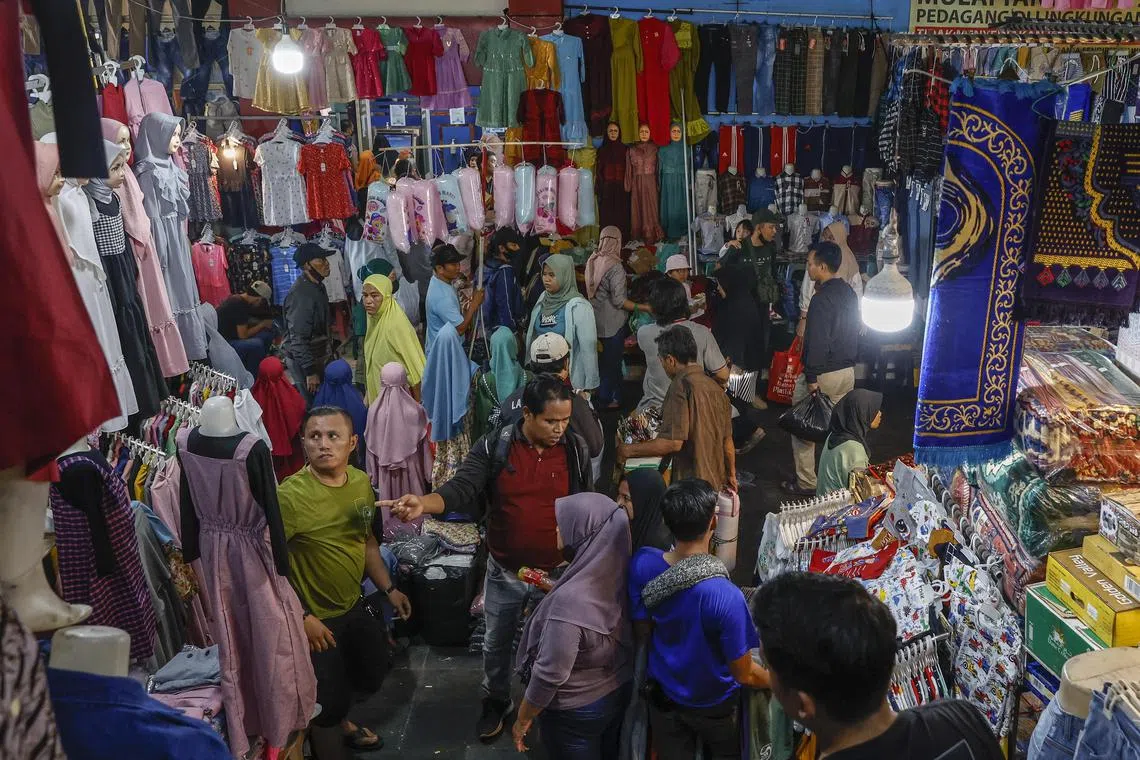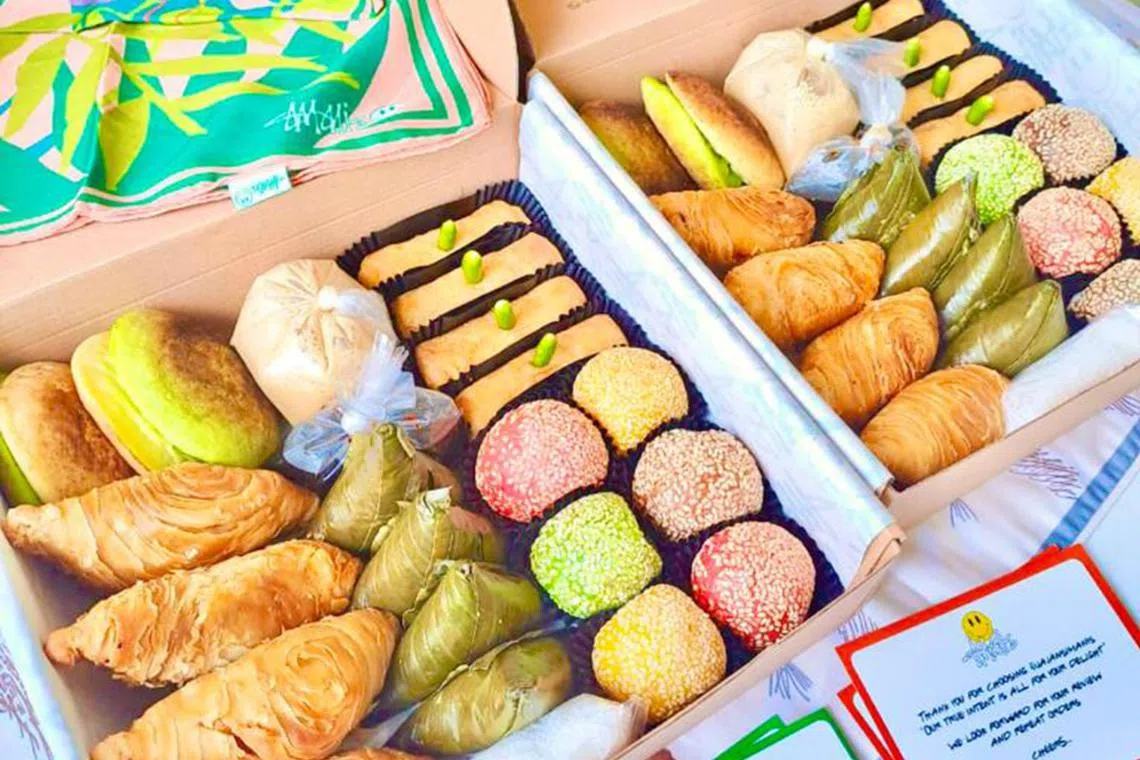Eid in Indonesia: E-commerce businesses continue to flourish even with Covid-19 curbs eased
Sign up now: Get insights on Asia's fast-moving developments

The lifting of Covid-19 curbs in the world’s most populous Muslim-majority country have allowed crowds to return to brick and mortar store.
PHOTO: EPA-EFE
JAKARTA - Indonesia is in a shopping frenzy with just a week to go before Hari Raya Aidilfitri, and people are flocking online to buy ketupat rice cakes, decorative ornaments and festive clothes.
The lifting of Covid-19 curbs in the world’s most populous Muslim-majority country has allowed crowds to return to bricks-and-mortar stores and over 120 million people to travel to their home towns in the annual mudik exodus.
But e-commerce sites continue to bustle with activity, with platforms and merchants competing to offer the best deals.
Tokopedia, for instance, holds “holiday bonus promos” with discounts of up to 90 per cent and free delivery for purchases of at least 20,000 rupiah (S$1.80).
A shift in consumer behaviour to digital services during the pandemic has boosted online businesses like Dapur None and Jajan Simanis ahead of Hari Raya, or Lebaran, as it is known locally.
Jakarta housewife Fira Syahab is on track to sell more than 400 jars of homemade biscuits such as pineapple tarts and “cat’s tongue” cookies in 2023. This is eight times the volume she sold when she started her business, Dapur None, three years ago, after being forced to close her roadside food stall in Pontianak, West Kalimantan, after the Covid-19 outbreak hit Indonesia.
Ms Fira sells her goodies for 200,000 rupiah per jar on Shopee, with ride-hailing service Gojek making her deliveries within Jakarta. Through her Instagram account, which has more than 9,000 followers, she receives orders from those in other parts of the country.
“Selling cookies online is efficient. I can work from home and do not need retail racks or a kiosk,” the 29-year-old mother of two told The Sunday Times. “My work schedule is also flexible. I can even make cookies at night.”
Architect Ratna Fedara Fatimah, who sells Indonesian gourmet snacks such as serabi (a rice flour pancake with coconut milk) and klepon (mochi-like rice balls filled with palm sugar) via Instagram (@jajansimanis) and GoFood, expects orders to peak in the final days of Ramadan.

Ms Ratna Fedara Fatimah (left) and her business partner, Ms Liza Olivia, began selling just three types of snacks in June 2020.
PHOTO: COURTESY OF RATNA FEDARA FATIMAH
Daily sales have reached 3,000 to 3,500 pieces during the fasting month, nearly double that of a regular day.
Ms Ratna and her business partner, Ms Liza Olivia, began selling just three types of snacks in June 2020, after her architectural projects were all halted by the pandemic. Jajan Simanis now sells 36 different snacks and employs 25 people, with sales reaching up to 450 million rupiah a month. It also has a cafe and a retail outlet at a Jakarta hospital.
“Instagram allows us to reach out to (customers) in unimaginable places. We really never thought that our business would be this big,” Ms Ratna said, adding that many of her online customers now also visit the Jajan Simanis cafe.

Jajan Simanis now sells 36 different snacks and employs 25 people, with sales reaching up to 450 million rupiah a month.
PHOTO: COURTESY OF RATNA FEDARA FATIMAH
Indonesia’s digital consumer population grew by 21 million from the start of the pandemic to mid-2022. Its Internet economy was estimated at US$77 billion (S$102 billion) in 2022 and is projected to hit US$130 billion in value by 2025, according to a report published by Google, Temasek and Bain & Company in 2022.
Consumers are likely to continue shopping online for Hari Raya products and services in the years to come, said economist Satria Sambijantoro at Jakarta-based Bahana Sekuritas.
He expects demand to taper off as the positive sentiment from the economic reopening ebbs and people exhaust savings accumulated during the pandemic.
“This year’s Lebaran shopping may be the last wave of pent-up demand,” he said.



